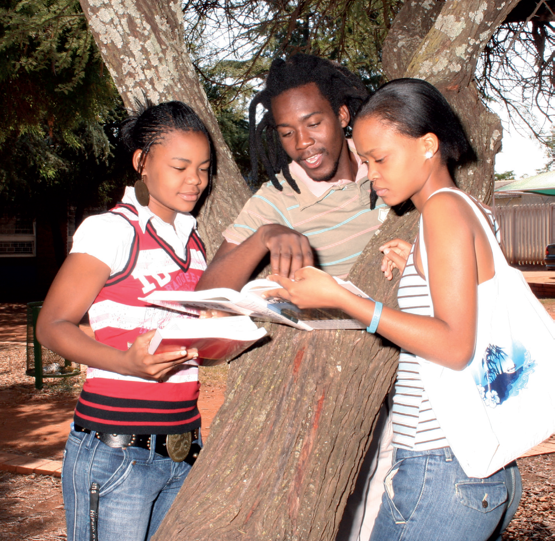Education has always ranked high on the democratic government’s list of priorities, with the ultimate aim to ensure all South Africans enjoy the benefits of education.
 To help achieve this, in 2009 the National Department of Education was split in two - the Department of Basic Education (DBE), and Department of Higher Education and Training (DHET).
To help achieve this, in 2009 the National Department of Education was split in two - the Department of Basic Education (DBE), and Department of Higher Education and Training (DHET).
The DBE was tasked with focusing on primary and secondary schooling, while the DHET turned its attention to Further Education and Training (FET).
FET covers a wide range of tertiary training, including career-oriented education and training offered in technical colleges, community colleges and private colleges.
FET colleges
The DHET’s focus has been on implementing a comprehensive turnaround strategy for all colleges. This saw 152 technical colleges across the country merge into 50 FET colleges with 264 campuses across country. These colleges offer a range of programmes that cater for most students’ needs, ranging from engineering, business studies, art and music to food services. The DHET is ensuring that there are FET colleges in every province to provide tertiary opportunities to young people in nearby communities.
According to the DHET, FET college enrolments increased from 271 900 in 2000 to 657 690 in 2012, thanks to the introduction of fee-free education for poor students and the expansion of shorter skills courses offered at FET colleges with the assistance of the Sector Education and Training Authorities (SETAs).
By 2012 women made up more than 58 per cent of students enrolled at FET colleges. To further increase FET enrolments, the DHET launched the Apply Now campaign, which encourages learners to think about their future and career path before it’s too late. The campaign also promotes FET colleges as institutions of choice.
New universities
This year two new universities - the University of Mpumalanga in Nelspruit and Sol Plaatje University in Kimberly, Northern Cape – opened their doors.
The Sol Plaatje University (SPU) offers three programmes: the Bachelor of Education in Secondary Mathematics, Science and Technology Teaching; the Diploma in Information Technology Applications and the Diploma in Retail Management.
The University of Mpumalanga (UMP) offers a Bachelor of Education in Foundation Phase Teaching at the Siyabuswa Campus, and the Bachelor of Agriculture and Diploma in Hospitality Management at the Nelspruit Campus. Both universities have started with a modest number of students, 135 at SPU and 140 at UMP, and will develop their capacity in line with the growth of quality infrastructure and human resources. The number of students is expected to increase over the 10-year development plan. SPU will grow to accommodate 7 500 students and UMP will accommodate 15 000.
Post school
Millions of young South Africans cannot continue their studies after school and join the ranks of the unemployed. To remedy this, the DHET recently launched the White Paper on Post School Education and Training. The paper aims to improve access to and the quality of education, while providing training opportunities for the youth at FET colleges, which will soon be renamed Technical and Vocational Education and Training (TVET) colleges.
The White Paper also aims to improve the
higher education system by upgrading the quality of programmes offered at TVET colleges; ensuring lecturer posts are filled and seeing to it that that more support is given to learners, particularly in rural areas.
Community colleges
The White Paper also aims to expand the skills development of school leavers and anyone who wants to gain skills. New community colleges will be established across the country and will address the education and skills gap for South Africans who never attended school. The introduction of these community colleges, which will be piloted first, will make a significant difference to those who never attended school and will give them a second chance.
The DHET’s goal is to achieve 1.6 million enrolments at public universities, 2.5 million at TVET colleges and one million at community colleges by 2030. It is also envisioned that by 2030 there will be at least one institution offering TVET programmes in every district in the country.
Decade of the Artisan
To promote skills development and training further, the department declared 2013 as the Year of the Artisan, under the theme ‘It’s cool to be an Artisan’. Due to the programme’s success, it has now been extended to the Decade of the Artisan. Through this programme, the DHET aims to produce 30 000 artisans a year.



 Facebook
Facebook Twitter
Twitter WhatsApp
WhatsApp